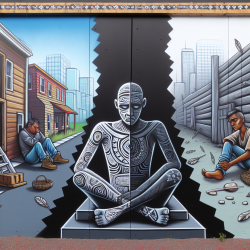Understanding Gender Differences in Indigenous Homelessness
The research article titled "Gender differences among Indigenous Canadians experiencing homelessness and mental illness" provides valuable insights into the distinct challenges faced by Indigenous men and women in Canada. This study highlights the critical need for gender-sensitive approaches in addressing homelessness and mental health issues among Indigenous populations.
Key Findings from the Research
The study, conducted using baseline data from a multi-site trial, focused on Indigenous individuals experiencing homelessness and mental illness in Vancouver, BC, and Winnipeg, MB. The findings revealed significant gender differences:
- Indigenous women were more likely to meet criteria for PTSD, multiple mental disorders, and high suicidality compared to men.
- Women reported higher rates of physical and sexual violence, with an adjusted odds ratio of 6.31 for sexual violence.
These results underscore the impact of historical and systemic factors, such as colonization, on Indigenous women's mental health and vulnerability to violence.
Implications for Practitioners
For practitioners working with Indigenous populations, these findings emphasize the importance of adopting culturally sensitive and trauma-informed approaches. Here are some strategies to consider:
- Trauma-Informed Care: Recognize the high prevalence of trauma among Indigenous women and incorporate trauma-informed practices into service delivery.
- Cultural Sensitivity: Understand the historical context and cultural significance of Indigenous identities to provide respectful and effective support.
- Gender-Specific Interventions: Develop targeted interventions that address the unique needs of Indigenous women, particularly in areas of mental health and safety.
Encouraging Further Research
While this study provides critical insights, it also highlights the need for further research to explore the nuanced experiences of Indigenous women and other gender identities. Practitioners are encouraged to engage in or support research initiatives that focus on:
- Longitudinal studies to understand the long-term effects of homelessness and mental health interventions.
- Exploration of the intersectionality of gender, culture, and mental health among Indigenous populations.
- Evaluation of culturally adapted interventions and their effectiveness in reducing homelessness and improving mental health outcomes.
Conclusion
The research underscores the urgent need for gender-sensitive and culturally informed policies and services for Indigenous Canadians experiencing homelessness and mental illness. By integrating these insights into practice, practitioners can contribute to more equitable and effective support systems.
To read the original research paper, please follow this link: Gender differences among Indigenous Canadians experiencing homelessness and mental illness.










